Polish
In 1936, a Star-Ledger article proclaimed, “The history of the Polish colony is interesting. The Polish population of Newark is well organized and may serve as an example to many other Polish settlements in other cities. Latest census figures show that there are approximately 46,000 persons of Polish birth…and approximately 75,000 persons in Essex County of Polish birth”.
Polish immigrants started coming to Newark in about 1865. They established a “colony” near the eastern end of South Orange Avenue and founded St. Stanislaus Church on Belmont Avenue in 1889, and St. Casimir’s in the Ironbound in 1908.
According to Charles Cummings, “Polish life in the Ironbound was influenced by many organizations and self-help groups. A recent newspaper article noted that few if any children speak Polish at St. Casimir’s School, in part because many Polish people have moved to the suburbs. But even with the exodus, Polish traditions remain strong in the Ironbound, as strong as in years past: the celebration of Holy Saturday, the ham, kielbasa, colored eggs…”
Despite the numbers and unlike the Italians, Irish, Germans, and Jews, the Poles failed to leave their mark on the political footprint of Newark. Many individuals were prominent and successful as working people, soldiers and professionals, but all those Polish people in the Ironbound or the 3rd Ward (now the Central Ward) never elected a Councilman. Like the other white ethnics in Newark, they moved to a better life in the suburbs.
References:
Charles F. Cummings, Knowing Newark: Selected Star-Ledger Columns by Charles F. Cummings.
John T. Cunningham, Newark
Star-Ledger, April 15, 1936.
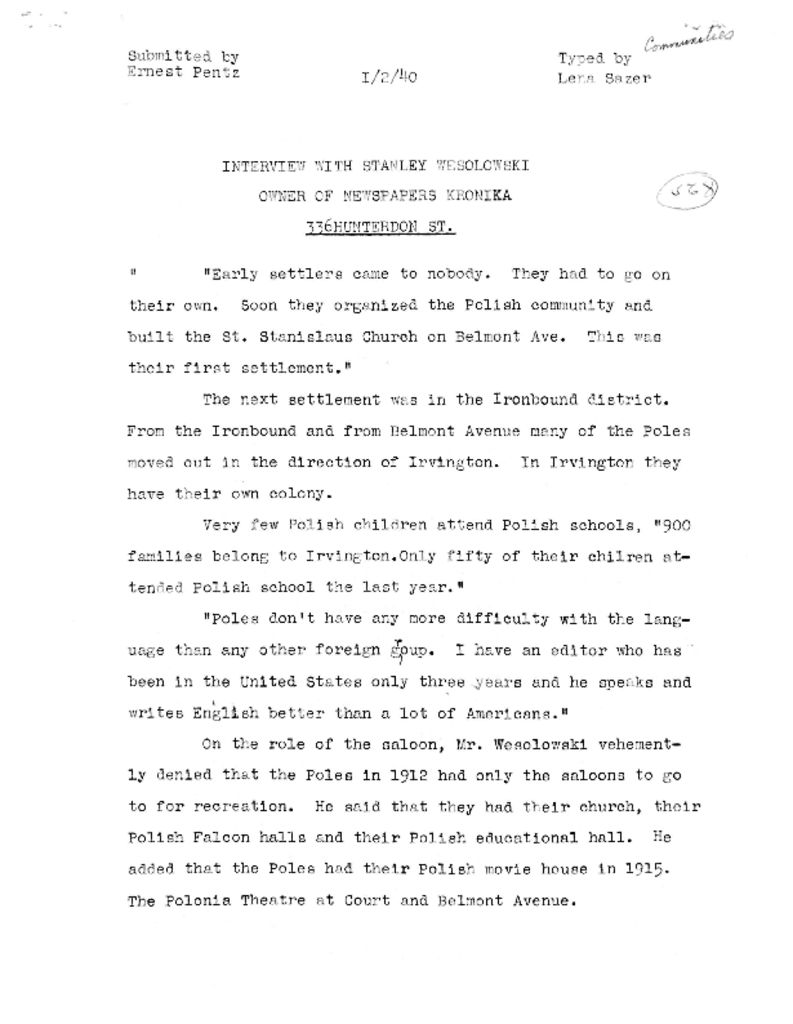
Transcript of an interview with Stanley Wesolowski, owner of Newspapers Kronika, conducted by staff of the Works Progress Administration (WPA) in 1940. The WPA employed millions during the Great Depression through projects such as ethnological surveys of major cities like Newark. — Credit: New Jersey State Archives
Explore The Archives
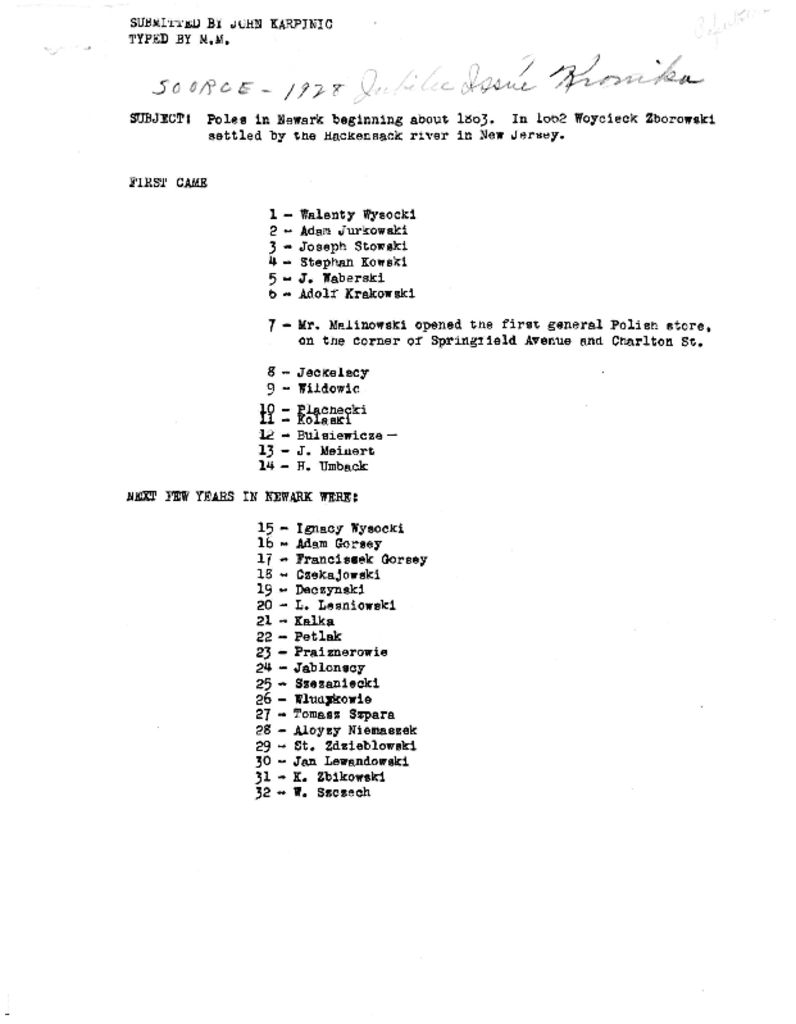
List of Polish immigrants in Newark beginning in 1863, compiled by staff of the Works Progress Administration (WPA). The WPA employed millions during the Great Depression through projects such as ethnological surveys of major cities like Newark. — Credit: New Jersey State Archives
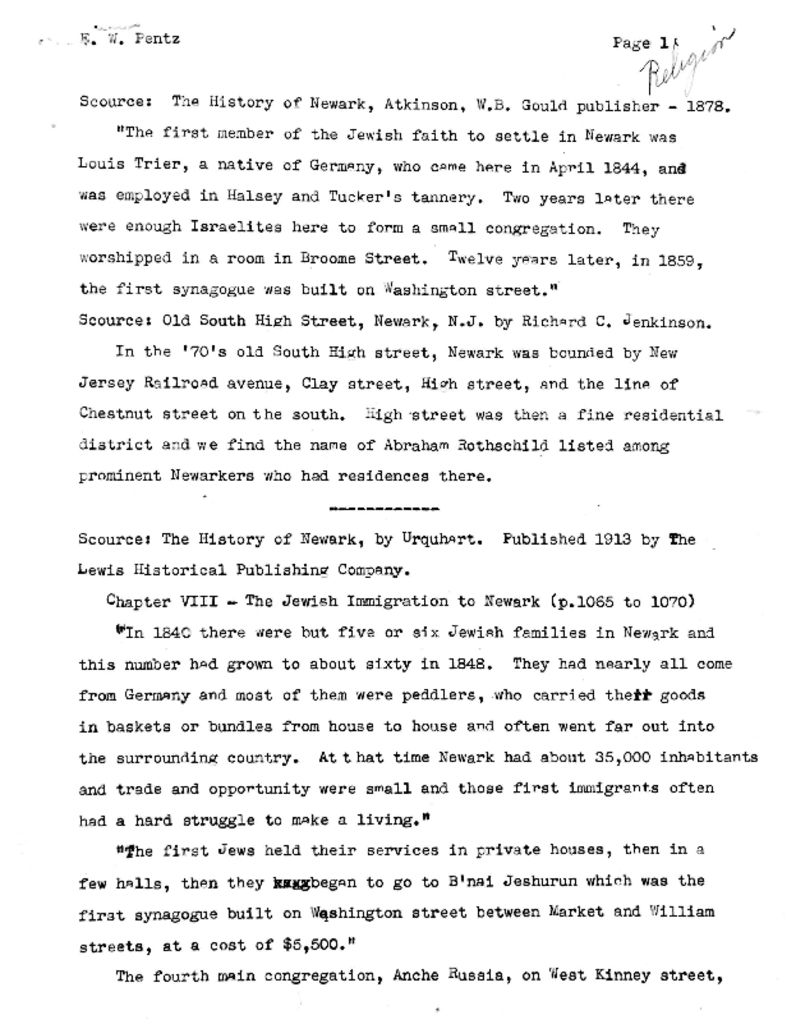
Statistics on Newark’s Polish population by census year, compiled by staff of the Works Progress Administration (WPA) in 1941. The WPA employed millions during the Great Depression through projects such as ethnological surveys of major cities like Newark. — Credit: New Jersey State Archives
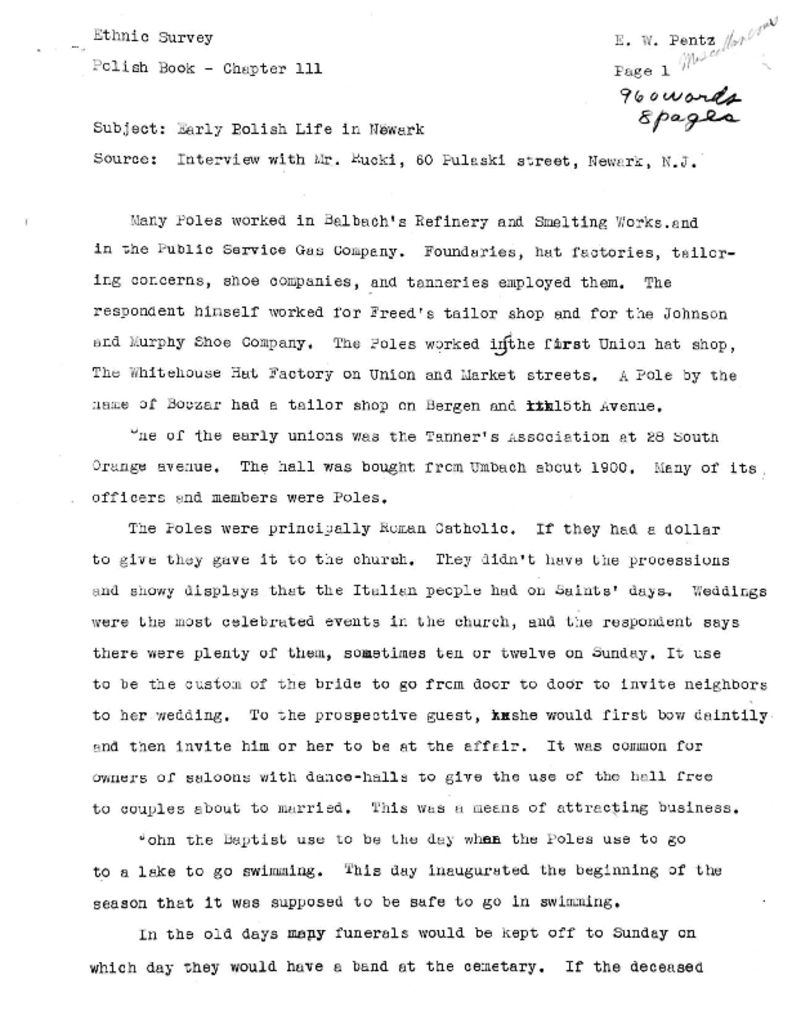
Transcript of an interview with Mr. Rucki, a Polish immigrant to Newark, conducted by staff of the Works Progress Administration (WPA). The WPA employed millions during the Great Depression through projects such as ethnological surveys of major cities like Newark. — Credit: New Jersey State Archives
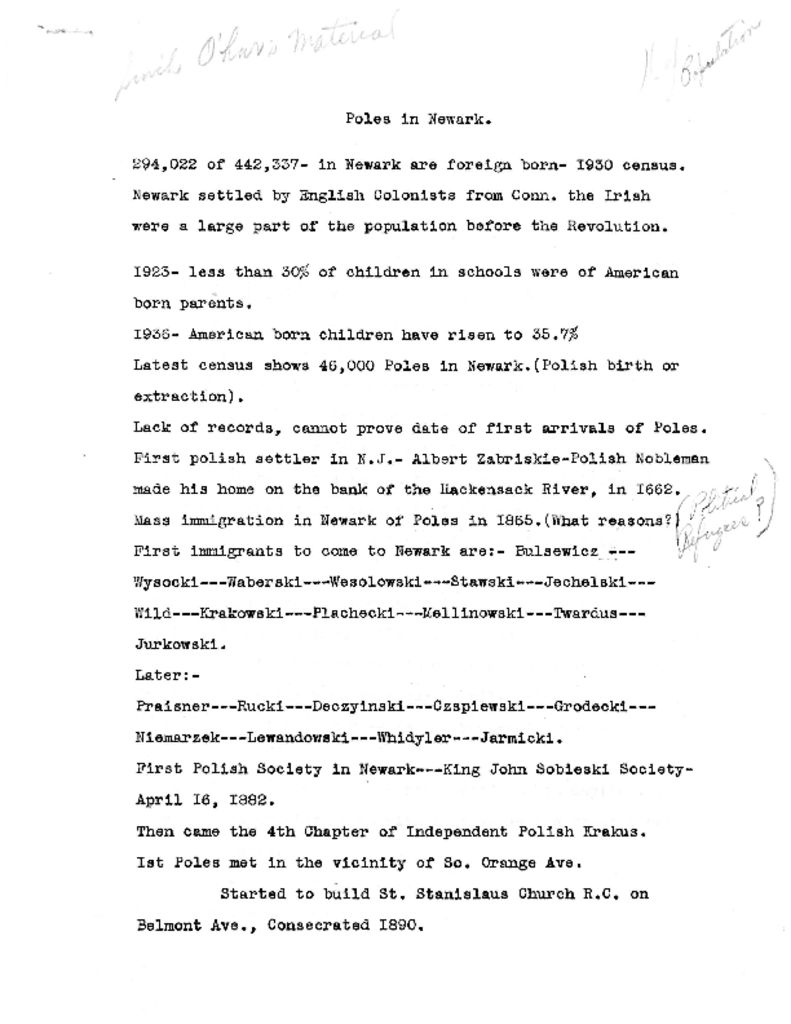
Notes of Works Progress Administration (WPA) staff on Polish immigration and life in Newark. The WPA employed millions during the Great Depression through projects such as ethnological surveys of major cities like Newark. — Credit: New Jersey State Archives
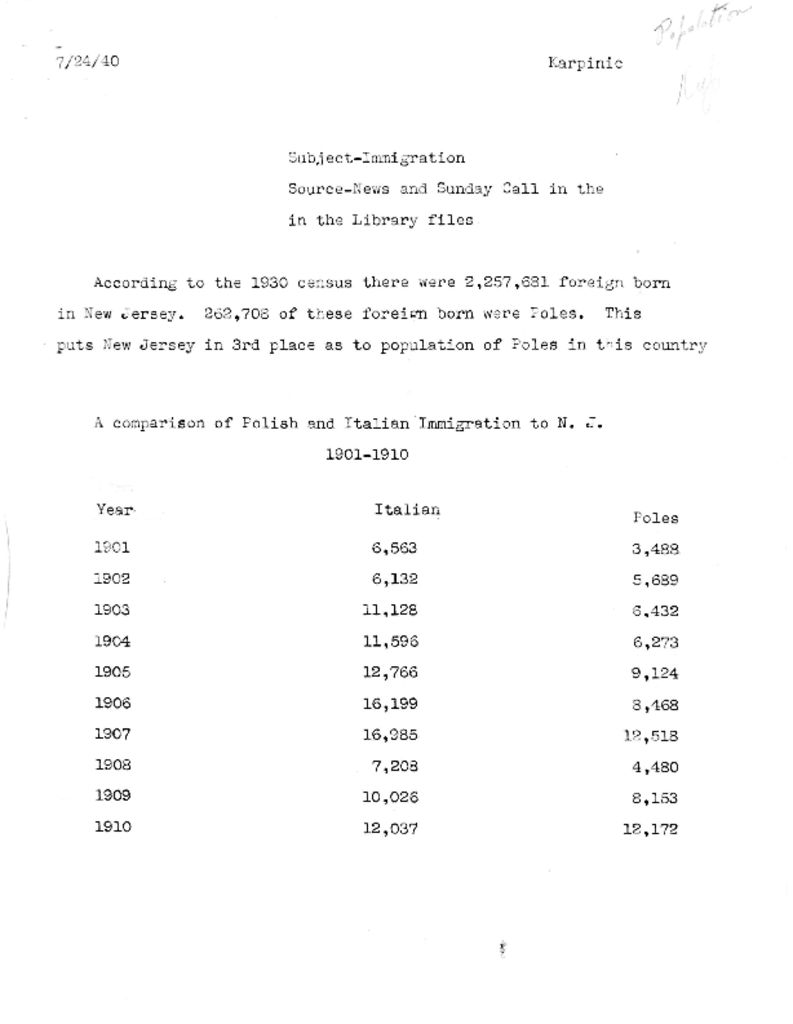
The WPA employed millions during the Great Depression through projects such as ethnological surveys of major cities like Newark. — Credit: New Jersey State Archives
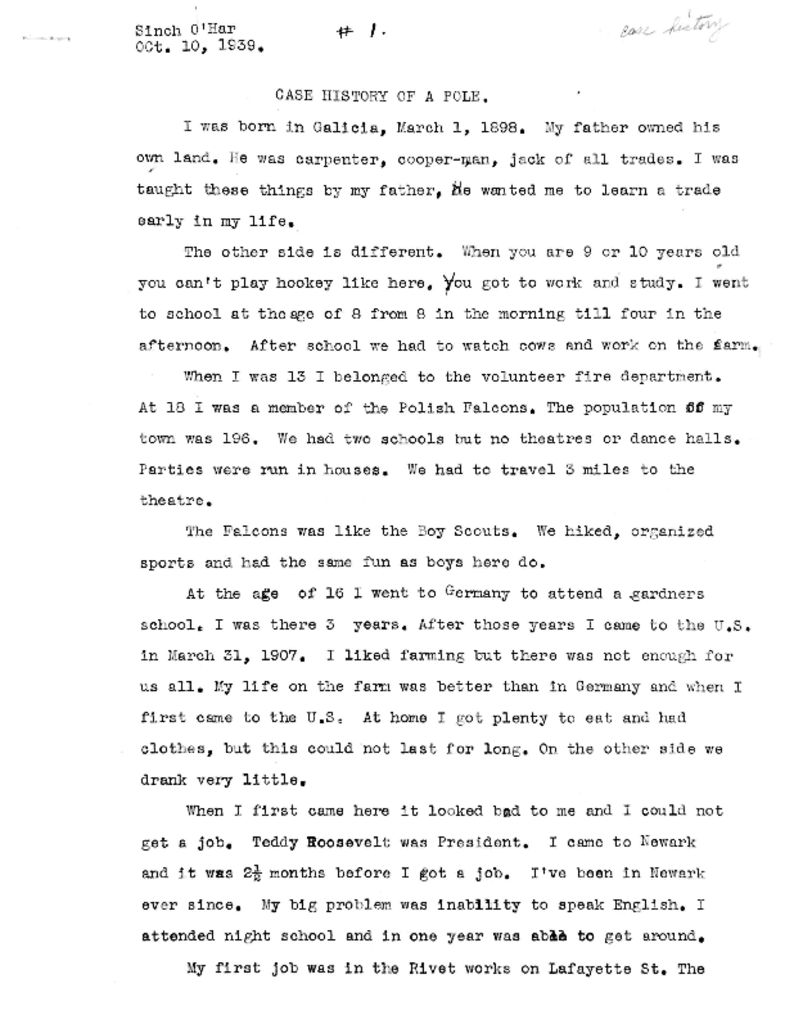
Personal history of a second-generation Polish immigrant to Newark, as told to staff of the Works Progress Administration (WPA) in 1939.The WPA employed millions during the Great Depression through projects such as ethnological surveys of major cities like Newark. — Credit: New Jersey State Archives
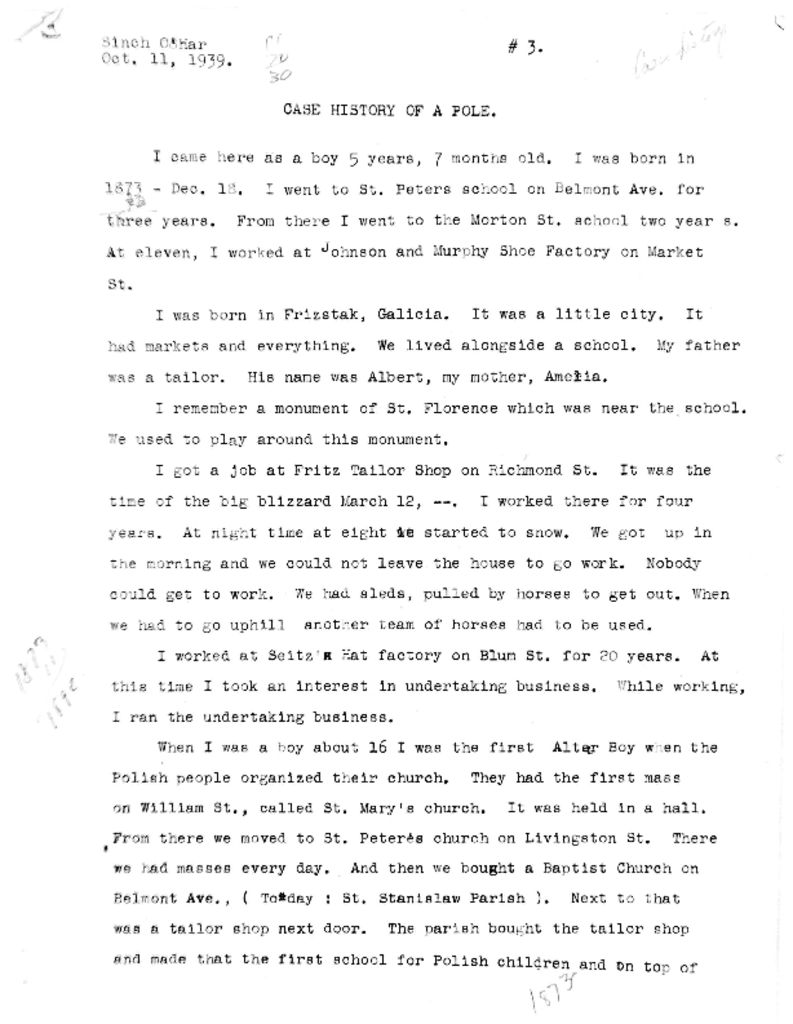
Personal history of a Polish immigrant to Newark, as told to staff of the Works Progress Administration (WPA) in 1939. The WPA employed millions during the Great Depression through projects such as ethnological surveys of major cities like Newark. — Credit: New Jersey State Archives
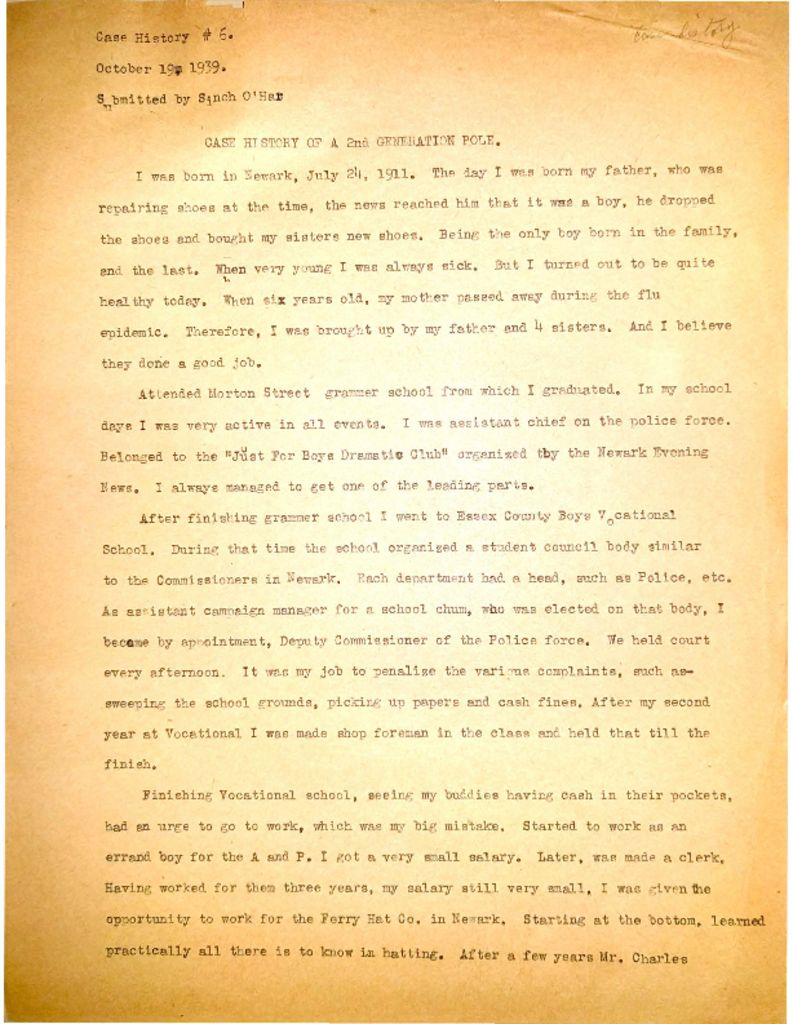
Personal history of a second-generation Polish immigrant to Newark, as told to staff of the Works Progress Administration (WPA) in 1939. The WPA employed millions during the Great Depression through projects such as ethnological surveys of major cities like Newark. — Credit: New Jersey State Archives
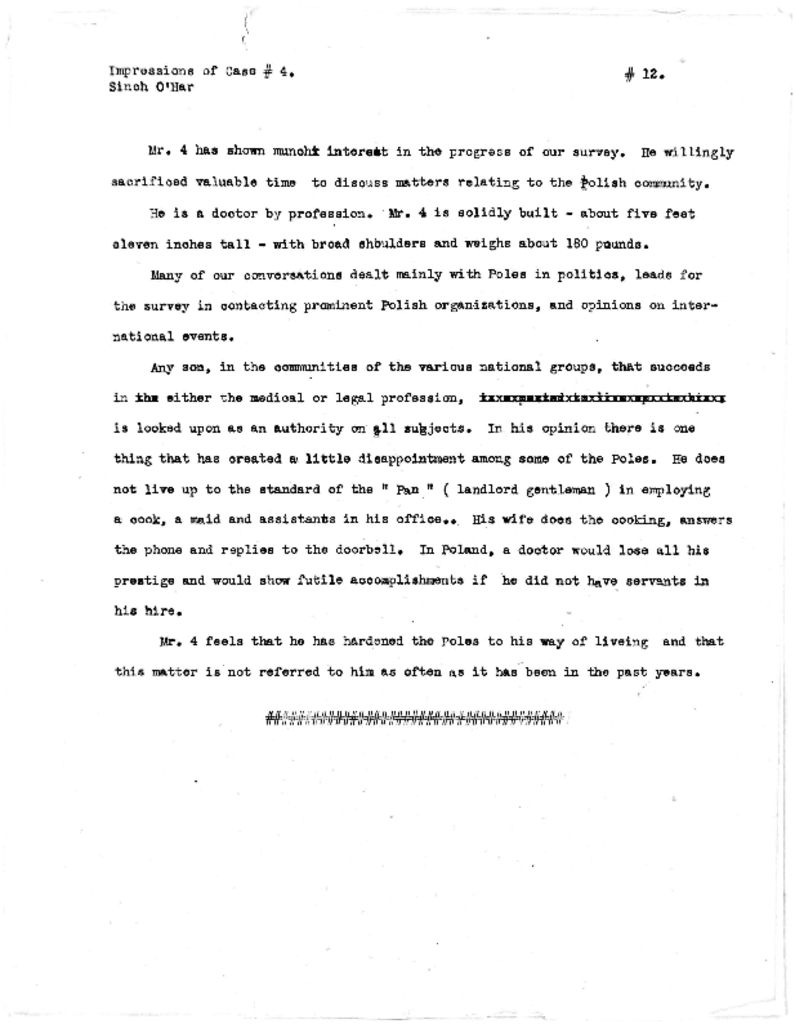
A profile of a “prominent Pole” in Newark, based on an interview conducted by staff of the Works Progress Administration (WPA). The WPA employed millions during the Great Depression through projects such as ethnological surveys of major cities like Newark. — Credit: New Jersey State Archives
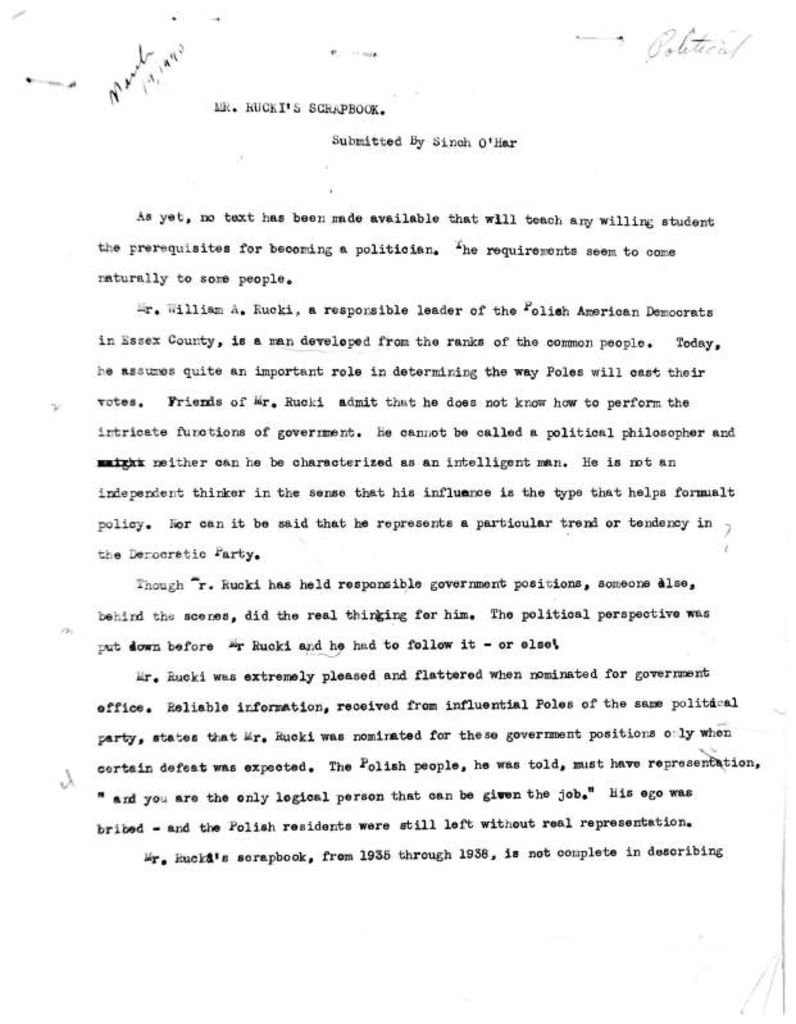
Report on the scrapbook of Mr. Rucki, a prominent Polish politician and leader in Newark, written by staff of the Works Progress Administration (WPA). The WPA employed millions during the Great Depression through projects such as ethnological surveys of major cities like Newark. — Credit: New Jersey State Archives
